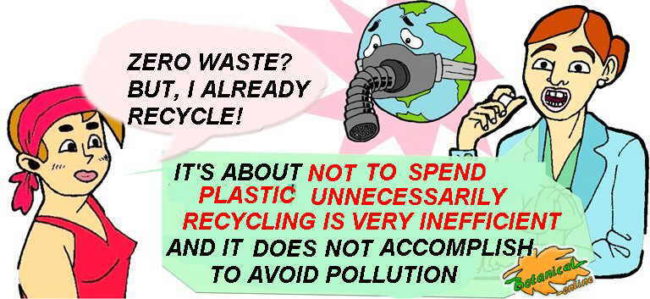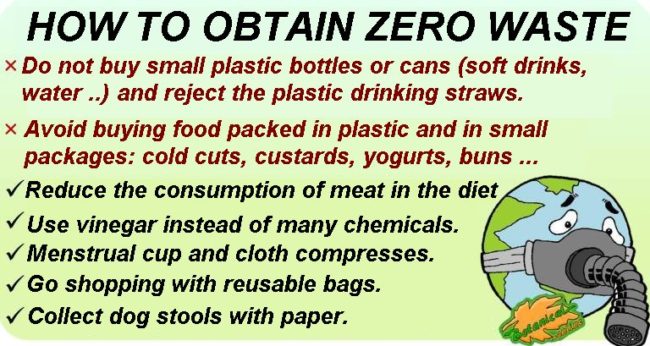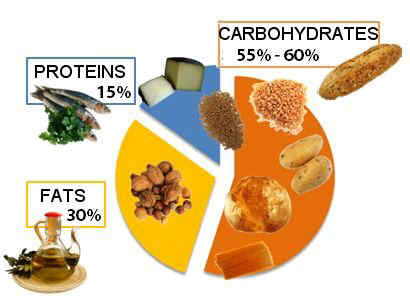Contents
- 1 Natural products for a home much more respectful with the environment
- 1.1 What is the zero waste movement?
- 1.2 Recycling is not the panacea
- 1.3 Looking guilty of pollution and responsible for waste management
- 1.4 Oceans and mountains of plastic: an urgent problem
- 1.5 Minimalism and zero waste
- 1.6 Do not waste the plastic
- 1.7 Avoid unnecessary chemicals
- 1.8 How to be zero waste in the kitchen
- 1.9 How to reduce waste in the bathroom
- 1.10 The zero waste that is not seen
- 1.11 Spread the message zero waste
Natural products for a home much more respectful with the environment
What is the zero waste movement?
The zero waste or zero waste movement consists of reducing the use of non-reusable packaging and products and contaminants to try to stop the ecological disaster that is currently occurring. In other words, avoid “use and throw” as a usual procedure in homes.
One of the most important points is to stop buying packaged products or products containing plastic, which is the most difficult domestic material to dispose of from the environment.

Recycling is not the panacea
For many years, we have been educated in the culture of consumerism and recycling. The industrialized societies every day consume a large quantity of polluting and disposable products, of which only a minimum part is recycled. Who recycles the plastic paper that wraps the meat? Who recycles the soft drink bottle we drink on the street? How many people spend a plastic bag in good condition to throw the plastic into the recycling bin? Why do yogurts come in individual plastic containers, when they could be purchased in liter containers and dosed during the week?
On the other hand, there is the idea that recycling is enough to justify the use of plastics. Nothing is further from reality. Above all, because it is proven that most plastics are not recycled.
In addition, current recycling systems are inefficient and totally incapable of reversing the pollution that is being generated, since most waste is not classified properly.
You could even say that the idea of recycling has been counterproductive, as it is often used as an excuse to justify the indiscriminate use of plastics.
There are many actions that can be done at the individual level, in homes, in order to reduce the consumption of plastics and other non-recyclable materials. In addition, they will help us save and stop buying many that really do not need.
Looking guilty of pollution and responsible for waste management
When dealing with such a global issue as the environment, most of the time there is a tendency to derive full responsibility from authorities and governments. Certainly, there are many initiatives that can be undertaken by companies and at the state level to generate less waste and recycle them. However, individual ecological awareness is essential to generate a global environmental movement.

Have you stopped to think about the waste of spending a single plastic container each time you take a custard or custard-type dessert, or drink a soda? How many decades will pass until these capricious containers of few milliliters biodegrade? And if we multiply the expense by millions of people in the world, every day?
There are many homemade or commercial alternatives to plastic containers, perhaps not as comfortable as the “use and throw”, but certainly much more sustainable. But these options will never become popular without first being demanded by the consumer.
Oceans and mountains of plastic: an urgent problem
We can not cope with waste management ! Every day tons and tons of waste are dumped into the oceans, whose components deteriorate and filter, affecting the quality of the soil, the air, the water, the oceans, the life of the animals and the animals. people. Did you know that microplastics are already found in water and food?

Minimalism and zero waste
The zero waste movement is related to minimalism because those who practice it eliminate many unnecessary or even harmful products from their homes. On the other hand, it is worth mentioning that, in the medium and long term, there is also considerable economic savings.
- It’s not just about recycling: it’s about not using unnecessary or non-reusable plastics.
Do not waste the plastic
In order not to contaminate more, it is necessary to make good use of resources:
It is not necessary to spend a plastic bag every time the dog does its business: it can be collected with recycled newspaper.
- Use plastic bags many times: Plastic bags can have more than 20 uses, however, most are used only a couple of times (hopefully!).
- Use a cube to recycle: It is very absurd and polluting to spend a plastic bag in perfect condition every time you throw plastic (or any waste) into the recycling bin. To avoid this, a reusable bucket can be used.
- Pick up the dog’s stools with newspaper and not with plastic: Most times it is not necessary to spend a plastic bag to collect the dog’s stool, but it would serve a recycled newspaper.
Avoid unnecessary chemicals
In cleaning products there is a lot of plastic and contaminants, which often damage the skin, generate allergies or even affect our hormonal system.
Sometimes it is necessary to use them, but in most cases there are possible alternatives much more respectful with the environment and our health, in addition, more economical and equally effective.
For example, vinegar diluted in water: It is used to clean all types of surfaces and floors, including wood, parquet and marble. To give aroma you can add drops of essential oil of lemon, lavender or citronella.
Another revelation is the ecological sponges, consisting of algae or plant materials, such as luffa (sponge fibers of a type of pumpkin).
How to be zero waste in the kitchen
One of the most important sources of waste is the packaging of food and beverages, because we consume them many times during the day, every day of the year
How to reduce waste in the bathroom
Many homes have a bathroom full of plastic containers that, in addition to contaminating, contain products that can also affect our health
The zero waste that is not seen
Finally, another fashion that pollutes a lot and that is increasingly on the rise is the issue of buying at a distance. Although technology facilitates access to many products that are not affordable in local establishments, many other times are consumed online only to avoid having to spend time traveling. The transport sector is quite polluting, in addition to consuming more plastic and packaging. For this reason, whenever possible, it is better to go to physical stores.
Spread the message zero waste
Despite these global movements, the majority of the population continues to ignore the signals that nature commands. For this reason it is important that each informed person contribute their bit and spread respect for the environment and against the waste of resources.
From our experience, we have observed that the people who are most committed to the environment and who are most interested in this type of initiative are young people, who probably grow with greater environmental awareness.
![]() More information on zero waste
More information on zero waste
23 April, 2019








